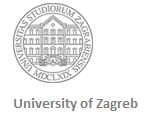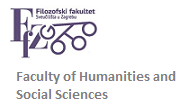Home » 8. semestar – NASTAVNIČKI SMJER – jednopredmetni
Category Archives: 8. semestar – NASTAVNIČKI SMJER – jednopredmetni
Practicum 2 (8th sem.)
Course title: PRACTICUM 2Instructors: Asst. Prof. Renata GeldECTS credits: 3Status: mandatorySemester: VIIIEnrollment requirements: noneCourse description: Elements of the lesson plan for an EFL class. Designing teaching activities. Using textbooks. Adapting teaching materials. Effects of the media on teaching. Using ICT in EFL teaching. Assessing effective teaching. Post-teaching reflection. Self-assessment of teaching. Reacting to feedback. Cooperation […]
TEFL Methodology
Course title: TEFL METHODOLOGYInstructors: Asst. Prof. Renata GeldECTS credits: 5Status: mandatorySemester: VIIIEnrollment requirements: noneCourse description: Contrastive teaching of English pronunciation to three basic age groups of learners; teaching English morpho-syntactic structures to three basic age groups of learners; teaching English lexis to three basic age groups of learners; contrastive teaching of English graphics to three […]



